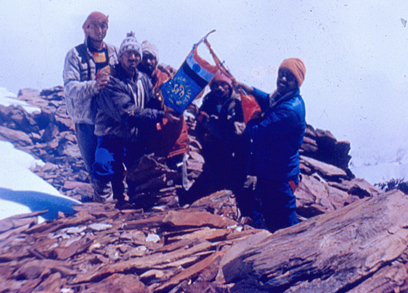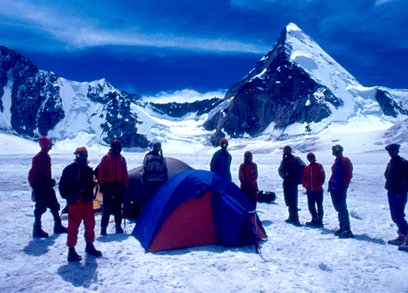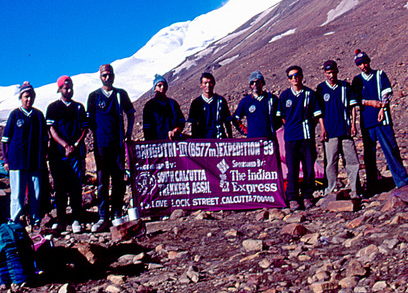
Many years ago, George Mallory, one of the pioneers of modern-day mountaineering, was asked that what inspired him to keep returning to the Himalayas.
Mallory gave a simple answer. He said, "Because it's there". Since then, this apparently commonplace question has chased mountain-lovers everywhere. Intrigued and perplexed by it, they have searched for a rationale behind mountaineering, a secured ground on which they could stand and defend this dangerous game. But this quest has not yielded many results. Even today, Mallory's words remain the most-quoted and celebrated explanation behind their passionate urge to visit the mountains.
South Calcutta Trekkers Association, a tiny initiative of a group of friends, started walking on the same terrain roughly from the year 1983. Today, when we look back at those footprints left on the face of time, Mallory's words and the question that he was asked become very important for us. In all our modest activities of climbing peaks, trekking in the mountains, camping in the jungles, we have always felt an irresistible urge to come back. We have felt it almost as a compulsion, as an intoxicant, as the point of fulfillment of our lives. And in all these years, many more have joined us. Young minds with fresh enthusiasm have got involved in this endless voyage, in this carnival of joy, sorrow and unrestrained vigor.

But the big 'why' still remain unanswered. Mallory's answer also reflected a standard form of human desire - the desire to know. The chief impetus behind all discoveries, all expansions in all ages stemmed from this forceful and arrogant desire. To know is to conquer, to exercise control through conquest. It involves the modernist zeal of progress, of moving towards the mastery of that final truth. Mountains, however, can never be known. They have always eluded such an arrogance of knowledge.
Climbing a mountain might give birth to a sense of triumph in mountaineers. Our experiences have, however, been enriched most by our 'failures' in the mountains. Failure, in terms of being unable to reach the summit or to reach the planned destination, are perhaps the best occasions to delve deep, to look for an answer to the irresolvable question. The 'why' behind mountaineering can never be a single, concrete answer.

South Calcutta Trekkers Association has dealt with this question at an existential level. In this momentary gathering of experiences, we have seen mountaineering as life. We have seen mountains as a source of strength and of will-power. We have seen in them a grand reminder of our inconsequential existence, from their tranquility, we have derived our humility. We have listened to tales of incredible struggles against freezing winds and towering heights. In listening to and narrating those tales and many more, we have formed our own little community. Away from the mountains, amidst the bustle of a draining urban existence, we have tried to refine our sensitivities through our philosophy.
We do not claim moving from 'peak to peak'. We can only talk of a different perspective on life as such. And we want to share that perspective. By sharing we want to know - not the secret of the untapped wonders of nature but the puzzles of our own existence.